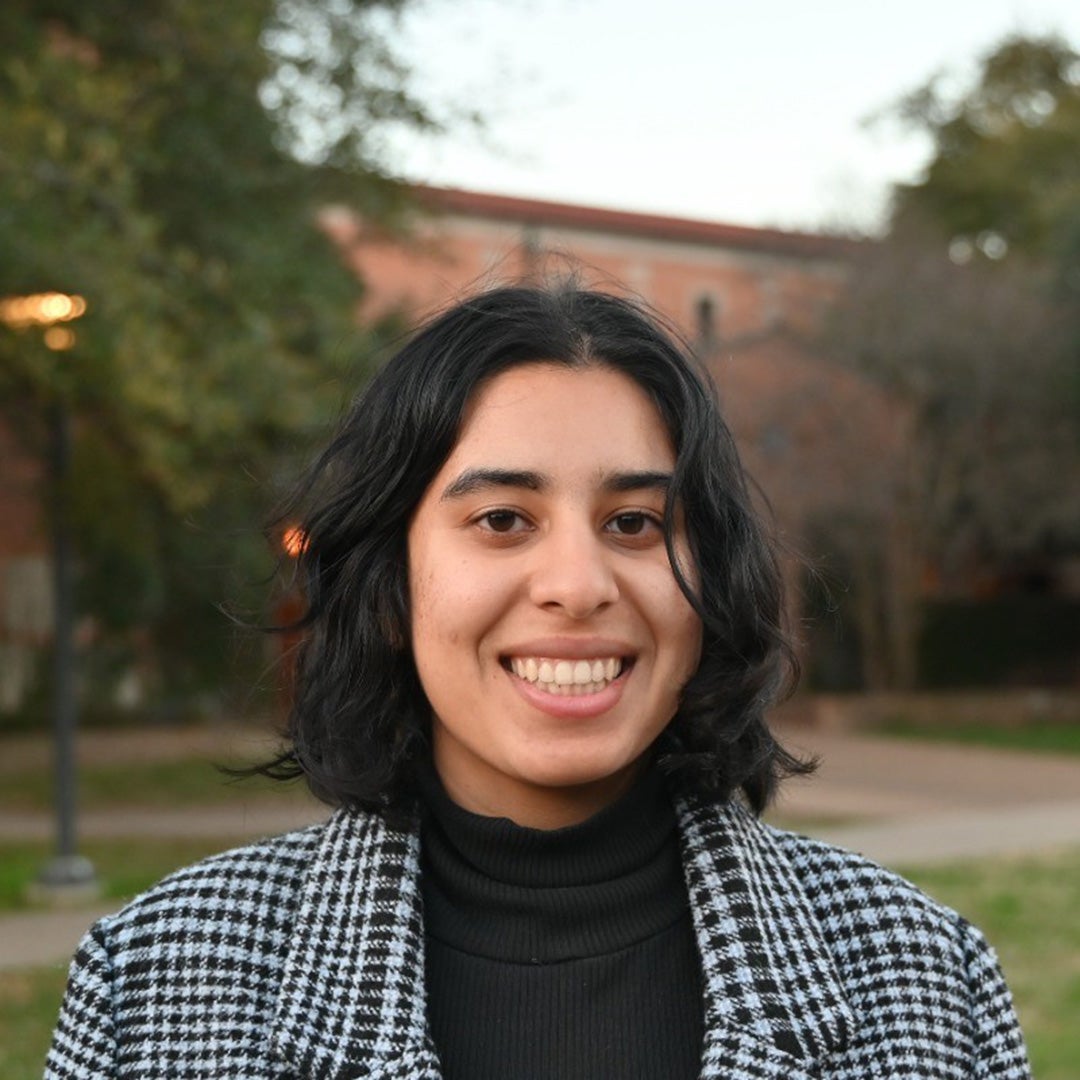Graduating May 4 with a double-major in history and transnational Asian studies, senior Rijuta Vallishayee’s experience at Rice University has been marked by scholarly excellence and a fervent commitment to independent research.

“Rice wasn’t the closest choice or perhaps the most obvious one, but the faculty seemed to quite genuinely care about me coming there as opposed to being one student in a nameless, faceless crowd,” said Vallishayee, a native of the San Francisco Bay Area, who added that she was also drawn to Rice by the strength of its history department.
Early in her academic career, Vallishayee seized the opportunity to pursue independent research through the Elizabeth Lee Moody Undergraduate Research Fellowship in the Humanities and the Arts, a competitive program that supports undergraduate research in the humanities at Rice. Under the mentorship of Tani Barlow, Rice’s George and Nancy Rupp Professor of Humanities, Vallishayee delved into the intricacies of television drama censorship in China.
“Rijuta has matured into a promising scholar and a lovely young person,” Barlow said.
This research culminated in the publication of translated regulations and two papers, one of which earned her recognition at the Mellon Mays Southeast Regional Undergraduate Conference and the Rice Undergraduate Research Symposium.
“The fellowship helped me develop my research process better,” said Vallishayee, who also served as co-editor-in-chief of the Rice Historical Review. “It’s made me into a better researcher and a better writer.”
Vallishayee used those skills in her application to the graduate program at the University of California, Berkeley.
“During the coursework she did with me, she found specific topics of interest that she will pursue for her doctoral degree at Berkeley, where she will be working under Professor Wen-hsin Yeh, a well-known social historian of modern China,” Barlow said.
Beyond her academic achievements, Vallishayee said she cherishes the opportunities for intellectual exchange facilitated by the Moody Fellowship. Engaging with esteemed speakers and fellow scholars, she found inspiration and validation in her chosen field.
“Getting the fellowship is really an affirmation that what you’re doing is important,” Vallishayee said. “Rice is very STEM-research oriented, so letting humanities students know that what they’re doing is important is essential.”
Learn more about the Moody Fellowship here.

